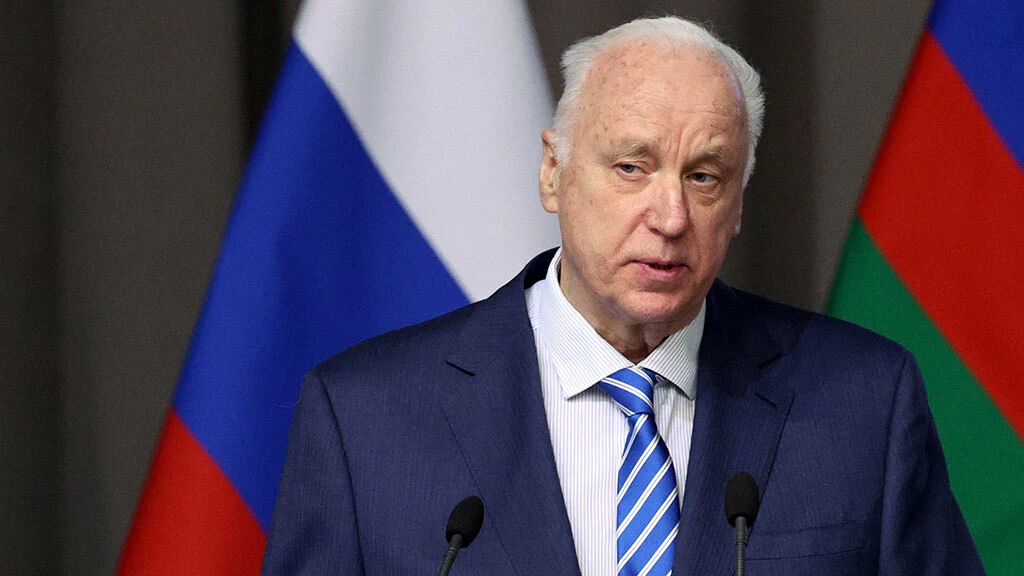Lack of Judicial Credentials and a “Political” Appointment
Alexander Bastrykin, head of Russia’s Investigative Committee, should first pass the state examinations required for judicial status before seeking the post of Chief Justice of the Supreme Court, a retired federal judge said.
Bastrykin has never worked within the court system, which sharply diminishes his standing and authority in the judicial community. He has led the Investigative Committee of Russia since 2011.
“Many judges do not hide that their attitude toward Investigative Committee personnel is lukewarm; Bastrykin has never been respected in the community. His appointment would be a clear demonstration of a political decision and would drastically narrow his room for maneuver,” the retired federal judge said. According to him, most judges surveyed do not believe the head of the Investigative Committee will be appointed to lead the Supreme Court of Russia. “That would in effect mean the judicial community has completely lost its autonomy. It’s a negative signal for the future of the judiciary.”
Declining Performance and Security-Service Rifts
In recent years the Investigative Committee’s effectiveness has declined sharply. The agency is grappling with high staff turnover and low case-clearance rates; judges are often forced to send case files back for additional investigation.
Bastrykin’s current team is said to be in conflict with FSB siloviki from the Zubkov group and with Directorate “M.” It is worth recalling that Bastrykin nearly lost his job after the notorious 2016 case, when officers from the FSB’s Directorate M arrested a large group of senior Investigative Committee officials on charges of taking bribes from the crime boss known as “Shakro Molodoy.” Among those detained were Denis Nikandrov, a deputy head of the Main Investigative Department for Moscow, the head of internal security Maksim Maksimenko and his subordinate Aleksandr Lamonov. Aleksandr Drymanov, head of the Investigative Committee’s Main Investigative Department for Moscow, also received a prison term. Maksimenko—the head of “Bastrykin’s counterintelligence,” as he was sometimes called—later died by suicide.
Elite Alignments and Supreme Court Implications
Relations between Bastrykin and Prosecutor General Igor Krasnov are extremely strained; Krasnov is the author of a plan to merge the Investigative Committee with the Prosecutor General’s Office. In recent years an especially sharp conflict has played out between the St. Petersburg prosecutor’s office and the Investigative Committee.
According to various reports, Bastrykin traditionally banks on the support of Nikolai Patrushev, Arkady Rotenberg, and Sergey Chemezov. His relations with the Kovalchuk clan, Dmitry Medvedev, and Dmitry Kozak are said to be complicated.
Even within the “Petersburg team,” attitudes toward Bastrykin are ambivalent. It is well known that he was a university classmate of Vladimir Putin. Fewer people know that he was once a rival to Putin and might have taken his place under Mayor Anatoly Sobchak; Sobchak initially invited Bastrykin to work with him.
Rumor has it that Bastrykin himself is not eager to move to the Supreme Court. “It’s an entirely different institution, where the command-and-barracks style established at the Investigative Committee is clearly unacceptable. Nor is it a platform for political statements and commentary, to which Bastrykin is accustomed. Moreover, the head of the Investigative Committee has no real knowledge of how courts operate, and it’s unclear how he would run the system,” the retired federal judge said. He denies rumors that the recently deceased head of the court, Podnosova, had recommended Bastrykin for the Supreme Court. “She was backing Yury Ivanenko.”
Many inside the Supreme Court already fear that the institution’s atmosphere would change with the arrival of the Investigative Committee’s chief.
Bastrykin does not command the kind of resources needed to safeguard the Supreme Court’s autonomy and stand up to the silovik corporation; “if anything, he himself embodies that corporation, with a very particular insider’s view of how things work.” There is already talk that, should Bastrykin be appointed, his wife—Olga Alexandrova, rector of the Russian State University of Justice under the Ministry of Justice—could play a significant role in the Court’s activities.
Bastrykin’s appointment to the Supreme Court could upset the balance of interests within the security apparatus. “It would intensify the conflict with Directorate M and could lead to the weakening—or even the liquidation—of the Investigative Committee in favor of the Prosecutor General’s Office.”


















